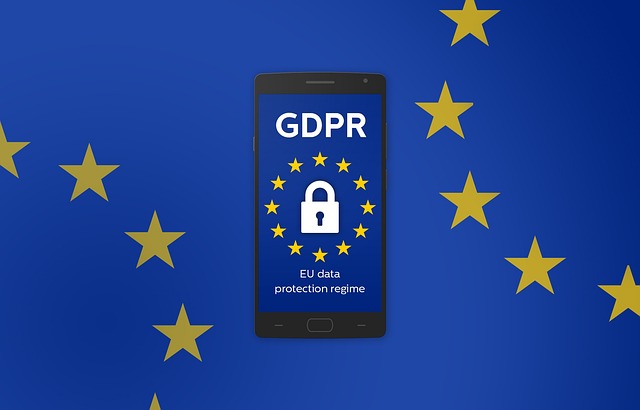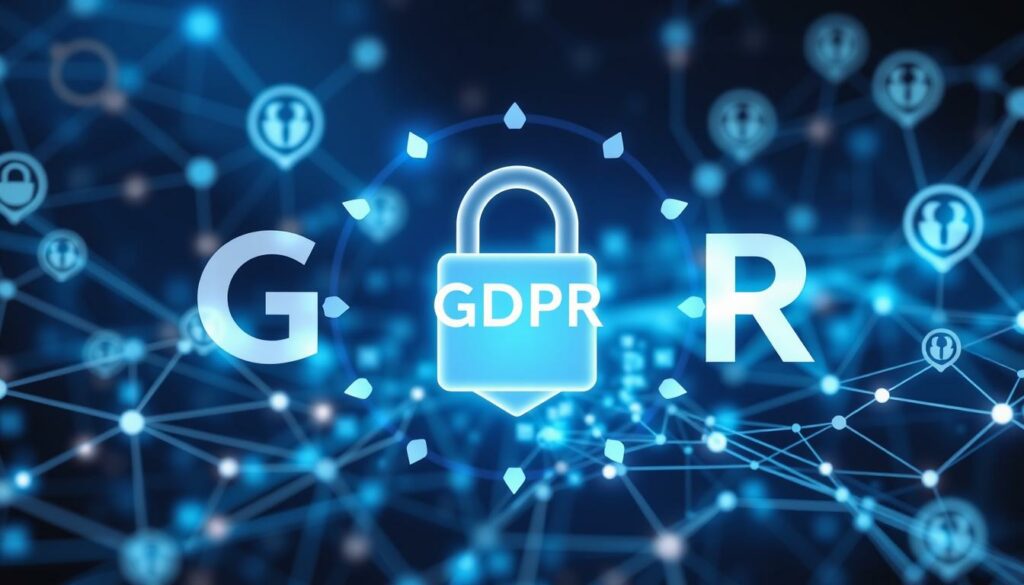How To Be GDPR Compliant – Your Complete Guide
Navigating the world of data protection can feel overwhelming, especially with regulations like the GDPR in place. But don’t worry! This guide is here to help you understand what GDPR compliance really means and how it can benefit your business.
We’ll break down the key principles, explain the rights of your customers, and offer practical tips to ensure you’re handling personal data responsibly.
Whether you’re a small business owner or part of a larger team, you’ll find the insights you need to build trust with your customers and keep their data safe. Let’s dive in!

Understanding GDPR: An Introduction
The General Data Protection Regulation (GDPR) is a major change in EU privacy law. It started on May 25, 2018. This law affects companies all over the world that deal with the personal data of EU people.
The GDPR has strict rules for handling personal data. It aims to give people more control over their information.
Under the GDPR, companies function as either data controllers or processors. Controllers decide why to use data, while processors handle the work for them. The law has seven main rules: it must be lawful, fair, and clear, and data must only serve its intended purpose.
The GDPR affects all companies that handle EU citizens’ personal data, no matter where they are. It includes many types of personal info, like names and health records. Companies must have a Data Protection Officer if they watch people closely or handle lots of sensitive data.
The Importance of GDPR Compliance
GDPR compliance is crucial for businesses today. It protects privacy rights and offers many benefits. Companies can face huge fines if they don’t follow the rules.
These fines can be up to 20 million euros or 4% of a company’s global revenue. Amazon faced a fine of 746 million euros for failing to obtain consent for ads. Even big names like TikTok faced a fine of 345 million euros for data issues.
But GDPR compliance is more than just avoiding fines. It helps businesses keep running smoothly and improves how they handle data. Companies that focus on data protection appear trustworthy. With new tech like generative AI, businesses need to keep up with tracking personal info.

Key Definitions in GDPR
The General Data Protection Regulation (GDPR) brought in key terms for data privacy.
Personal data includes any details that can identify a person, such as names, addresses, or IP addresses. The GDPR also highlights three main types: genetic, biometric, and health data.
A data subject is the person whose information is being processed. Data controllers decide how and why to use personal data. They work with data processors, who handle the information for them. The GDPR outlines 25 key terms related to compliance obligations.
Consent must be specific, informed, and clear. Companies need to move from opt-out to opt-in processes. This change affects how they collect and use personal data.
Understanding these definitions is key to GDPR compliance. Companies must know what data they collect and why. They need to implement data protection measures and respect data subject rights. Failure to comply can lead to big fines, up to 4% of annual turnover or €20 million.

Assessing Your Organization’s GDPR Readiness
To meet GDPR standards, companies must map their data. This step shows where personal data moves within the organization. It’s key to list all data handling activities, as GDPR Article 30 demands.
Checking your role in data handling is also important. You need to know if you’re a controller or processor. This helps decide if you need a Data Protection Officer (DPO). If you have more than 15 employees, you must appoint a DPO to ensure compliance with GDPR rules.
For risky operations, Data Protection Impact Assessments (DPIAs) are crucial. They spot risks and fix them. Tools like Microsoft Purview Compliance Manager help check if you’re following GDPR. Regular audits and staying up-to-date with GDPR rules keep your data safe.

Creating a GDPR Compliance Strategy
Creating a GDPR compliance strategy is crucial for companies that handle personal data. Since 2018, they must focus on privacy by design. This means protecting data from the beginning of any process.
A strong data protection policy is the core of GDPR compliance. It explains how an organization collects, uses, and protects personal info. Companies must regularly review and update these policies to follow the law.
Conducting Data Protection Impact Assessments (DPIAs) is a key step. These assessments find and reduce data risks in high-risk activities. DPIAs are crucial for new tech or big data.
Organizations should also manage consent and handle data transfers across borders. Training staff on GDPR rules is essential. Some companies might need a Data Protection Officer to oversee compliance.
Remember, GDPR affects businesses worldwide that handle EU residents’ data. Non-compliance fines can be up to 4% of global turnover.
GDPR Compliance: Essential Steps
Getting GDPR compliant needs a solid plan. First, make a data processing register. It tracks all personal data your company deals with. This helps you know what data you have, why you have it, and how you use it.
Then, work on consent management. GDPR says consent must be clear, specific, informed, and clear-cut. Set up systems to get and keep records of user consent for data use. This proves you have the right to handle personal info.
It’s also key to have strong security steps. Do regular risk checks and use the right tech to protect data. This could be encryption, access controls, and keeping data to the minimum needed. Remember, mistakes by people are often the main reason for data leaks, so training employees is vital.
Make plans for handling requests from data subjects. GDPR lets people ask for their data, fix it, delete it, and move it. Your company should be ready to handle these requests fast.
Finally, check and update contracts with data processors. Make sure they follow GDPR and have the right data protection clauses. By taking these steps, you’re on the path to GDPR compliance.
Data Subject Rights and How To Address Them
The GDPR gives people strong rights over their personal data. Companies must answer access requests within 30 days. This quick response helps data subjects quickly learn how companies use their data.
Data portability is a big right. It lets people get their data in a format they can easily use elsewhere. The right to be forgotten allows individuals to request the deletion of their data under certain conditions.
Organizations need clear steps to handle these requests quickly They must check identities and see if the request is valid. Keeping records of all interactions is also key. Using automation tools can help manage GDPR and data subject rights better.

Implementing Security Measures for GDPR Compliance
GDPR compliance means having strong security for personal data. Companies need to focus on encryption, access controls, and cybersecurity. These steps protect sensitive info and build trust with customers and partners.
Data encryption is key for GDPR. It protects personal data when stored or transferred. Access controls and strong authentication are also vital. They make sure only the right people can see the data. Regular checks on these systems keep them working well.
Cybersecurity is crucial for GDPR. Companies should have plans ready for data breaches. This includes quick detection, reporting, and investigation. Secure file compression helps in safely sharing sensitive data.
Closing Notes: Achieve Compliance and Boost Security
Incorporating GDPR compliance into your business operations is not only crucial for avoiding substantial fines but also for building customer trust and maintaining a strong reputation. By following the steps outlined in this guide, you can ensure GDPR compliance and demonstrate your commitment to safeguarding personal information.
Remember, GDPR compliance is an ongoing process; regular updates and proactive data management are key to adapting to the evolving landscape of data protection.
Looking to streamline your media hosting while staying GDPR compliant? DivShare offers powerful tools to securely store, manage, and share your content—all with privacy at the forefront. Join DivShare today to host your files on a platform that prioritizes data security and compliance. Start protecting your digital assets effectively!